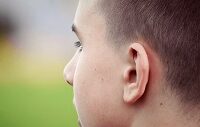Resources to Help Kids Thrive Newsletter
What Is Complex Trauma?
A weekly update of content from childmind.org featuring parenting advice, in-depth articles, and the latest thinking on children’s mental health and learning disorders.
February 14, 2023
Related Resources
Want to Receive Content Like This?
Get mental health resources delivered to your inbox each week.





